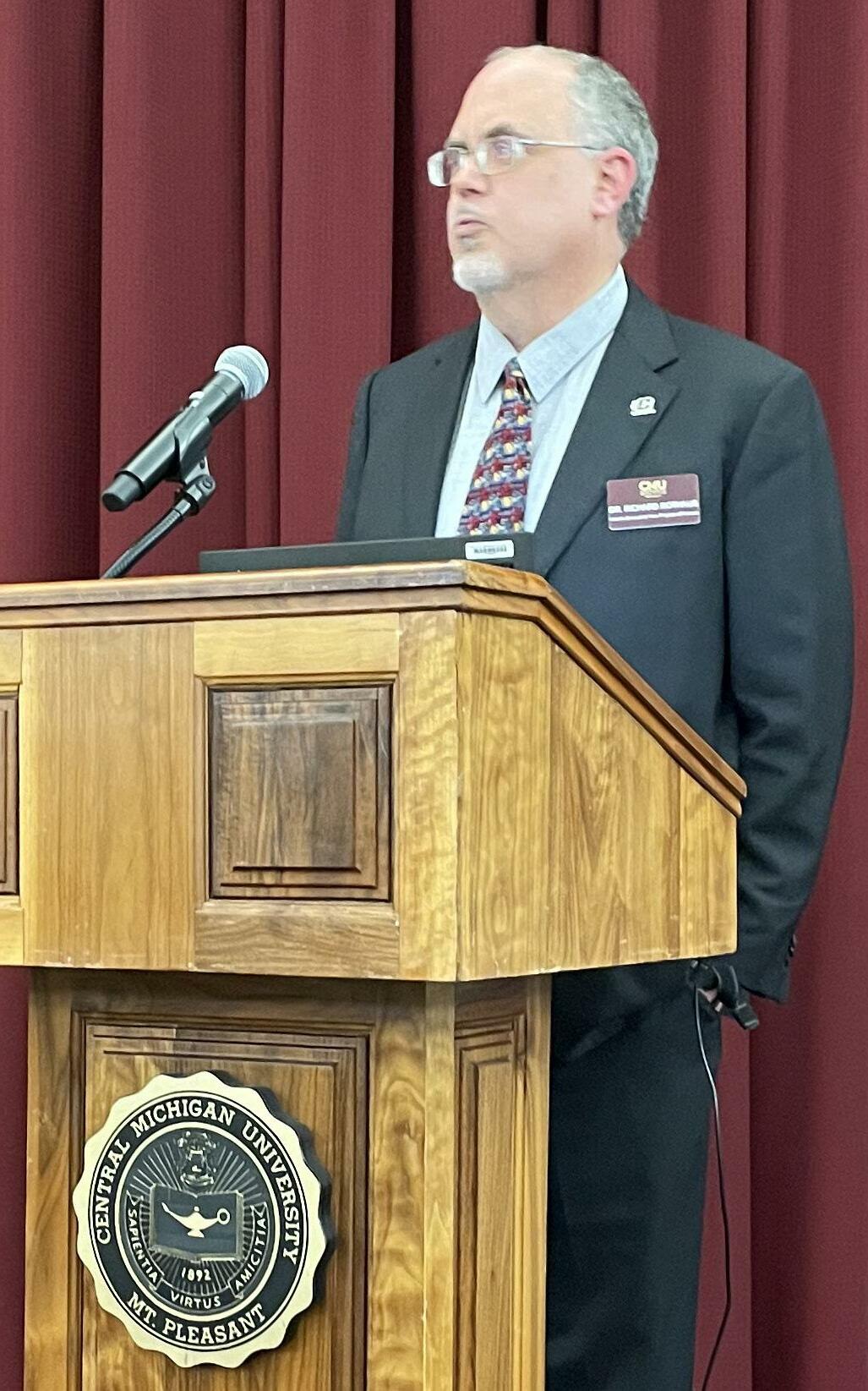
1 minute read
Contribution from Dr. Rothaus
A message from Dr. Richard Rothaus
Dean of the College of Liberal Arts and Social Sciences
Advertisement
In Fall 2022 Griffin Forum focuses on ballot initiatives, and ballots are very much at issue right now. The U.S. voting and electoral systems have come under scrutiny and skepticism. The issue is not widespread and obvious fraud. We have no 97% electoral landslides that are the mark of totalitarian states. We have no fraud like in 1927 Liberia, where President King received 234,000 of the 15,000 possible votes. We have election statistics that indicate almost no fraud at all. But this is to miss the point. Faith does not come from statistics, but from belief, and many Americans have lost faith. Athens, the home of democracy, chose most officials with klesterion. Eligible citizens put their tokens in, and while everyone watched, the names of the next officials came out. Citizens voted by raising their hands in affirmation; nine people chosen at random counted the votes. For matters that required anonymous voting, a citizen would drop a pebble in the “yes” or “no” jar. Athens grew into a direct democracy after periods of aristocracy and tyranny, and the Athenians built western democracy out of skepticism about paths to power. In the U.S., we have elections that conclude with invisible electrons in the guts of computers. I am not doubtful of the veracity of the system, but I also am not surprised when people want to see paper ballots counted by hand. We cannot go back to pebbles in jars, but we should be able to see why voting is not inspiring faith in people who want something more physical.






